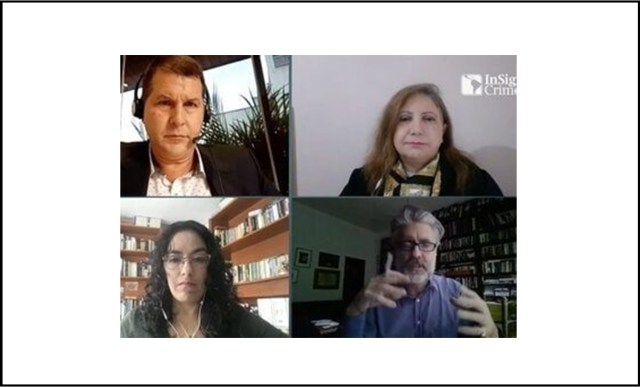
InSight Crime has presented its latest report, Venezuela’s Cocaine Revolution, the product of three years of investigation by the Venezuelan Investigative Unit.
By InSight Crime – Chris Dalby
May 5, 2022
Involving hundreds of interviews and fieldwork in every drug trafficking hotspot in the country, it reveals groundbreaking details on how Venezuela’s cocaine market has evolved. Over five chapters, this investigation provides a detailed look at how President Nicolás Maduro’s government oversees and regulates the cocaine trade, which has become a crucial source of state revenue.
Accompanying this report, InSight Crime held a live panel, featuring Co-director Jeremy McDermott; Sebastiana Barráez, a leading Venezuelan investigative journalist; Angélica Durán-Martínez, a professor of political science and Latin American expert at the University of Massachusetts-Lowell; and Javier Mayorca, a Venezuelan crime investigator.
“This provides the most complete update on the involvement of Venezuela and its main political actors in drug trafficking. It is an exhaustive work,” said Mayorca, describing the investigation and its findings before inviting McDermott to speak.
McDermott’s presentation began with the explanation that Venezuela is no longer a “transit country” for drugs and is a full-blown cocaine producer. The “adoption” of Colombian criminal groups, such as the guerrillas of the former Revolutionary Armed Forces of Colombia (Fuerzas Armadas Revolucionarias de Colombia – FARC) and the National Liberation Army (Ejército de Liberación Nacional – ELN), as allies of the government of then-President Hugo Chávez, aggravated the situation.
These alliances have worked out well for the government, particularly due to Venezuela’s widespread economic crisis leading to authorities desperately being in need of foreign currency. The dollarization of the Venezuelan economy was only a further catalyst. “Any officer in strategic territories for drug trafficking has assured earnings in foreign currency,” McDermott said.
During its fieldwork, InSight Crime was able to confirm that coca plantations exist along the Venezuelan border in areas that match Colombia’s climate and topography.
“Today, we have the cocaine production system in Colombia replicated in Venezuela. We have confirmed the presence of coca plantations in Zulia, Apure, Táchira and Amazonas,” McDermott explained.
In closing, McDermott explained that should these conditions continue, Venezuela could become one of the main cocaine producers in the world.
Journalist Sebastiana Barráez then highlighted how the InSight Crime investigation confirmed several assumptions about the Venezuelan drug trade. She also reiterated the concern that Venezuela could become a heavyweight cocaine producer. “Once a country begins producing drugs, it is very difficult to get rid of that,” she pointed out.
Barráez focused on revelations within the report of close ties between criminal groups and politicians and army officers in some parts of the country. In one dedicated chapter, the investigation looks at the so-called Cartel of the Suns (Cartel de los Soles), described as “a fluid and loose-knit network of trafficking cells embedded within the Venezuelan security forces, facilitated, protected, and sometimes directed by political actors.”
The journalist also discussed the focus on the role key drug traffickers play within these networks, including Emilio Enrique Martínez, alias “Chiche Smith,” and Venezuela’s former intelligence chief, Hugo Armando Carvajal.
To close out the panel, Durán-Martínez commented on the fact that failings in the Colombian peace process and the splintering of criminal organizations had contributed to the situation in Venezuela
“Once these dynamics start, it’s very difficult to control them,” she said, referring to the rapidly deteriorating situation in Venezuela.
Durán-Martínez also spoke about the need for the international community to rethink its approach to the Venezuelan crisis. “Venezuela’s international isolation has not served in any way to reach the intended objectives, which is to achieve a political transition, and has contributed to the expansion of this problem,” she said.
…
Read More: InSight Crime – Event: Venezuela’s Cocaine Revolution
…

